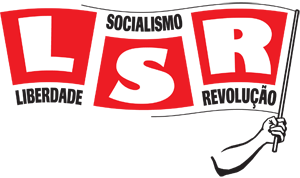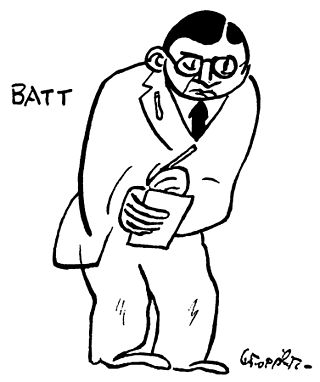
The Socialist Party of America (SPA) was a socialist political party in the United States formed in 1901 by a merger between the three-year-old Social Democratic Party of America and disaffected elements of the Socialist Labor Party of America who had split from the main organization in 1899.

The Socialist Party USA, officially the Socialist Party of the United States of America, is a socialist political party in the United States. The party was founded in 1973 as a successor to the Socialist Party of America, which had split a year prior, resulting in another group called Social Democrats, USA.

The Social Democratic Party of America (SDP) was a short-lived political party in the United States established in 1898.

The Moldavian Soviet Socialist Republic was one of the 15 republics of the Soviet Union which existed from 1940 to 1991. The republic was formed on 2 August 1940 from parts of Bessarabia, a region annexed from Romania on 28 June of that year, and parts of the Moldavian Autonomous Soviet Socialist Republic, an autonomous Soviet republic within the Ukrainian SSR.

The Ukrainian Soviet Socialist Republic, abbreviated as the Ukrainian SSR, UkrSSR, or UkSSR, and also known as Soviet Ukraine, was one of the constituent republics of the Soviet Union from 1922 until 1991. In the anthem of the Ukrainian SSR, it was referred to simply as Ukraine. Under the Soviet one-party model, the Ukrainian SSR was governed by the Communist Party of the Soviet Union through its republican branch: the Communist Party of Ukraine.

The Georgian Soviet Socialist Republic was one of the republics of the Soviet Union from its second occupation in 1921 to its independence in 1991. Coterminous with the present-day republic of Georgia, it was based on the traditional territory of Georgia, which had existed as a series of independent states in the Caucasus prior to the first occupation of annexation in the course of the 19th century. The Georgian SSR was formed in 1921 and subsequently incorporated in the Soviet Union in 1922. Until 1936 it was a part of the Transcaucasian Socialist Federative Soviet Republic, which existed as a union republic within the USSR. From November 18, 1989, the Georgian SSR declared its sovereignty over Soviet laws. The republic was renamed the Republic of Georgia on November 14, 1990, and subsequently became independent before the dissolution of the Soviet Union on April 9, 1991, whereupon each former SSR became a sovereign state.
The League for Social Reconstruction (LSR) was a circle of Canadian socialists officially formed in 1932. The group advocated for social and economic reformation as well as political education. The formation of the LSR was provoked by events such as the Great Depression and the completion of World War One as well as increased industrialization and urbanization.. The league esteemed 'rational moralism' as the ideology that could be utilized and applied to prevent suffering in Canada. The league aimed to act as an independent supplementary force influencing public policy reform in Canada during this tumultuous period. Working with both intellectuals and politicians, the league assisted in the creation of centralized social welfare and national assistance schemes. The LSR disbanded formally in 1942 during the Second World War.

The World Socialist Party of the United States (WSPUS) is a socialist political organization that was established in Detroit, Michigan as the Socialist Party of the United States in 1916 and which operated as the Socialist Educational Society in the 1920s before being renamed the Workers' Socialist Party. The organization reemerged in the 1990s and exists today as the American companion party of the World Socialist Movement.

Freedom, Socialism and Revolution is a Trotskyist political organisation in Brazil, created in 2009 by the fusion of Socialismo Revolucionário and Colectivo Liberdade Socialista. LSR is an active tendency of the Socialism and Liberty Party (PSOL) and the Brazilian section of International Socialist Alternative.
The Socialist Union of America, also called American Socialist Union, Socialist Union or Cochranites were a Trotskyist group that split from the Socialist Workers Party in 1953 and disbanded in 1959. It included most of the SWPs trade union base, as well as others sympathetic to the "Pabloist" line of the International Secretariat of the Fourth International, though it was never recognized as a section of the ISFI.

August Tyler (1911-2011) was an American socialist activist of the 1930s, a labor union official, author, and newspaper columnist. Tyler is best remembered as a leading American labor intellectual of the post-World War II era and as the author of a history of the International Ladies Garment Workers Union.

Eric Thomas Chester is an American author, socialist political activist, and former economics professor.

Georges Maximilien Antoine Grube was a Canadian scholar, university professor and democratic socialist political activist. Grube was a classicist and translator of Plato, Aristotle, Longinus and Marcus Aurelius. He was one of the founders of the New Democratic Party of Canada and ran unsuccessfully for election as an NDP candidate in Canadian federal elections.

Oakley C. Johnson was an American socialist political activist and writer. A founding member of both the Communist Party of America and the Proletarian Party of America, Johnson is best remembered as a historian of the radical politics of that era.

Dennis E. Batt was an American political journalist and trade union activist. Best remembered as the first editor of The Communist, the official organ of the Communist Party of America and leading member of the Proletarian Party of America, in later years Batt's political views became increasingly conservative and he ended his life as a mainstream functionary in the union movement.

The Socialist Labor Party (SLP) is the first socialist political party in the United States, established in 1876.

The Democratic Socialists of America (DSA) is a left-wing multi-tendency socialist and labor-oriented political organization. Its roots are in the Socialist Party of America (SPA), whose leaders included Eugene V. Debs, Norman Thomas and Michael Harrington. In 1973, Harrington, the leader of a minority faction that had opposed the SPA's transformation into the Social Democrats, USA (SDUSA) during the party's 1972 national convention, formed the Democratic Socialist Organizing Committee (DSOC). The DSOC, which Harrington described as "the remnant of a remnant", soon became the largest democratic socialist group in the United States. In 1982, it merged with the New American Movement (NAM), a coalition of intellectuals with roots in the New Left movements of the 1960s and former members of socialist and communist parties of the Old Left.
A socialist state, socialist republic, or socialist country, sometimes referred to as a workers' state or workers' republic, is a sovereign state constitutionally dedicated to the establishment of socialism. The term communist state is often used synonymously in the West specifically when referring to one-party socialist states governed by Marxist–Leninist communist parties, despite these countries being officially socialist states in the process of building socialism and progressing toward a communist society. These countries never describe themselves as communist nor as having implemented a communist society. Additionally, a number of countries that are multi-party capitalist states make references to socialism in their constitutions, in most cases alluding to the building of a socialist society, naming socialism, claiming to be a socialist state, or including the term people's republic or socialist republic in their country's full name, although this does not necessarily reflect the structure and development paths of these countries' political and economic systems. Currently, these countries include Algeria, Bangladesh, Guyana, India, Nepal, Nicaragua, Sri Lanka and Tanzania.
The New Union Party was a De Leonist political party based primarily in the U.S. state of Minnesota from 1980 to 2005. Its ideology was primarily based on the ideas of Daniel De Leon. According to De Leonist theory, militant industrial unions are the vehicle of class struggle. Industrial unions serving the interests of the proletariat will bring about the change needed to establish a socialist system. A strict adherent to pacifism, the NUP denounced political violence as a method of achieving revolution.














